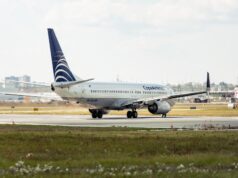
Following are a few random discussion topics for this month based on some observations I’ve made and ongoing discussions on my LinkedIn feed. If you’re reading this and we’re not connected on LinkedIn, make the connection request and I’ll accept it. I take all connection requests from folks in the aviation industry, regardless of what sector they’re in.
Coming Out of the Eye
Back in the COVID heyday of pilot hiring, I frequently mentioned that the business aviation was in a perfect storm hiring-wise. Competition for a limited pool of qualified pilots drove compensation rates skyward, and business aviation operators struggled to attract and retain personnel.
Then came the perceived lull—delays in aircraft deliveries slowed airline hiring and business aviation slowed as aircraft sales decreased and those who bought aircraft during the COVID frenzy began to rethink their expenditure. But during this timeframe, several things happened. The pilot unions for nearly every major airline landed contracts for increased compensation. NetJets’ pilots’ union landed a contract raising compensation 52.5% over a multi-year period, and compensation for business aviation professionals rose 16% over the two-year period from 2022 to 2024. These events begged the question: why were wages still increasing if the demand was decreasing?
The answer is that the conditions that created the demand were still in the background and those who were paying attention saw that. They knew the demand would return in time. And now, we’re seeing signs that pilot demand is again increasing – signs that we’re coming out of the eye of the hiring storm. In early March, business jet broker Jetcraft predicted 5.8% annual growth in pre-owned business aviation transactions through 2029, a total of 11,202 transactions worth almost $74 billion (Alcock, 2025). Nearly all bizjet OEMs have record delivery backlogs, most notably Gulfstream’s G700 with a 20-unit backlog from 2024 that will feed into 2025 (Lynch, 2025). A previous article in ACN indicated that the major airlines will be hiring 500 – 800 pilots each in 2025, while this is a slower rate than initially planned due to lingering aircraft delivery delays, it still creates demand – a demand that will continue to increase as Boeing gets back on its feet and mandatory retirements occur.
The eye of the pilot hiring storm is fleeting, folks. Those who are wise will act and prepare appropriately.
Pay Discussions and Federal Law
It can start with innocent intentions. Maybe two aviation managers are at the local watering hole and talking about their retention problems.
“I guess we’re not paying our captains enough,” one of them may say.
The other may respond “Well, you fly the same types we do, what are you paying them? We’re paying them $265,000 and we’re not having any issues.”
“Oh wow,” says the first manager, “I guess we need to up our game. We’re only paying $240,000.” “
Just don’t go any higher than $265,000,” the second replies, “maybe $270,000 if you have to. We don’t want to drive pay up any higher than it needs to be.”
What starts out as a simple pay discussion can violate federal law if two or more companies competing for the same candidates discuss specific pay rates for particular jobs in real time. But it can get worse. Have you ever heard of aviation managers in a specific airport or a metro area getting together to discuss pay rates? Or informal surveys being conducted by aviation managers to poll their competitors about pay rates? That scenario is definitely a violation of federal law, particularly the Sherman Antitrust Act.
The Sherman Antitrust Act of 1890 was passed as the U.S. entered the industrial age and large corporations attempted to monopolize entire industries. A key focus of the act is anti-competitive price fixing. It prohibits agreements, combinations, or conspiracies that restrain trade. Any agreement to fix prices or the use of wage surveys in a manner that encourages agreement on wage levels violates the act (World at Work, 2025).
During the 1990’s, a term called “safe harbor” was introduced and outlined specific practices to minimize potential harm to competition. These practices include:
- A third party must administer compensation surveys;
- Information provided by participants should be based on data that is at least three months old;
- At least five organizations should be represented in a benchmark;
- No individual provider should represent more than 25% of the benchmark population; and
- Benchmarks and statistics should be sufficiently aggregated to prevent identifying contributions of any single organization ( (World at Work, 2025).
If you’ve ever been frustrated about the timeliness of compensation data, now you know why it’s always old. It must be at least three months old to avoid real-time price fixing.
If you’re an aviation manager and you’ve ever participated in discussions like the one above or engaged in one of those “around the field” surveys, in the eyes of the federal government, you’ve engaged in a conspiracy. If an employee had reported you for it, you could have been investigated by the U.S. DOJ, the enforcing federal agency for antitrust crimes. So, my advice here is simple: don’t do it.
By the way, non-poaching agreements violate the Sherman Anti-Trust Act as well, because they too reduce competition. So, if you have any of those “gentlemen’s agreements” in place with other operators at your field or in your area where you mutually agree that you won’t hire personnel away from each other, you’re violating federal law. All it takes is one disgruntled employee or candidate to make the effort to report it and the DOJ might be paying you a visit.
Words to the wise. More next month.
Bibliography
Alcock, C. (2025, March 4). Jetcraft Preowned Aircraft Report Predicts Steady Growth. Retrieved from ainonline.com: https://www.ainonline.com/aviation-news/business-aviation/2025-03-04/jetcraft-pre-owned-aircraft-report-predicts-steady
Lynch, K. (2025, January 29). Gulfstreal Deliveries Soar Despite Lingering G700 Delays. Retrieved from ainonline.com: https://www.ainonline.com/aviation-news/business-aviation/2025-01-29/gulfstream-deliveries-soar-despite-lingering-g700-delays
World at Work. (2025). Understanding the Total Rewards Regulatory Landscape. Phoenix: World at Work.























































































































